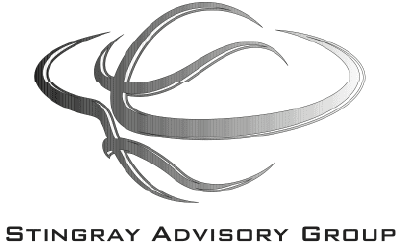Even if your business is small, providing it with the right equipment and resources is essential for building a foundation for success. Setting up accounting services, office space, website platforms, marketing materials and many other ingredients in your business’s recipe requires quite a bit of funding, even before hiring team members to pay.
While many businesses may turn to bank loans for financing, there are other ways that may be a better fit for certain business owners or business types. There may be pros and cons to each method, so finding the best fit depends on your needs, how much control you want over your business and how you expect to perform now and in the long-term.
Credit union lending
Credit unions are financial institutions that are member-owned and often focus on serving a specific community or group of people. They’re typically smaller and more community-focused than traditional banks, which can lead to more personalized and attentive service. This can be especially beneficial for small business owners who value a strong interpersonal relationship with a financial institution that prioritizes communal well-being.
Many credit unions offer specific services tailored to small businesses, such as business checking accounts, business loans and lines of credit. However, their services may be relatively limited compared to banks, and if their lending limits are smaller, they may not be a long-term fit.
Business line of credit
A business line of credit (LOC) is a type of financing that provides access to a predetermined amount of funds that can be borrowed and repaid as needed. These can be issued by traditional banks, credit unions and even online lenders. A LOC offers flexibility in terms of how and when you use the funds, helping you to save on interest payments because you’re only paying on what you’ve used. These are similar to how a credit card works. You can borrow and repay as needed within the predetermined credit limit, giving you the ability to manage cash flow fluctuations and address short-term financing needs. This might be the option for you if you expect to have quite a few unexpected expenses.
As you repay the borrowed amount, your available credit is replenished. This revolving structure allows you to reuse the credit line as long as you stay within the credit limit. If you manage your credit line well, it’ll help you build up a good credit history, helping you become a better candidate for more financing in the future. Credit lines generally have variable interest rates, though, so be prepared to keep that in mind as time goes on.
Microlending and community development financial institutions (CDFIs)
If you don’t have a long time in business, a strong credit score and can work with smaller amounts of money at a time, microlending may work for you. Microlending involves offering smaller loans to entrepreneurs and small business owners who may not have access to traditional financing options. Microlenders often offer more flexible loan terms compared to traditional banks and may not require collateral, making it easier for small or early-stage businesses to qualify for loans. This flexibility can include lower credit score requirements, more flexible repayment terms and customized loan structures that align with the business's cash flow.
Microlenders and CDFIs also offer resources to boost your business, such as financial literacy and business training programs to help entrepreneurs build their financial management skills. They often focus on underserved communities that traditionally do not have as much access to capital and other resources.
Crowdfunding
If you’ve seen people post fundraising campaigns online for a new business on sites such as Kickstarter or Indigogo, you’ve seen crowdfunding in action. Crowdfunding is an alternative way to receive funding without involving financial professionals like the above options. While it may not garner as much income, crowdfunding provides your business exposure to your target audience and shows that there is demand for your business. It’s often used to support businesses that are creative, innovative and too non-traditional for other methods of funding.
While crowdfunding typically doesn’t involve debt or equity, its degree of exposure can expose some of your intellectual property and pose a sense of responsibility to deliver to your audience, as they’re the ones financially supporting you. Gaining a high degree of exposure will also take some sales and marketing skills to promote your campaign to a substantial amount of donors.
Venture capital
If you’ve enjoyed shows like Shark Tank, the use of outside investments or venture capital is quite common to get a business off the ground. Venture capital often brings in large amounts of money that can fuel rapid growth and expansion. This can be particularly valuable for businesses in industries that require substantial upfront investment or have high operating costs.
If you’re looking for more support from a consulting standpoint, venture capitalists often have a wealth of experience and industry knowledge. They can offer valuable guidance, strategic advice and mentorship to help the business navigate challenges and make informed decisions. Venture capitalists usually have extensive networks of contacts, including other entrepreneurs, potential customers, partners and investors. These connections can help businesses access new markets, distribution channels and business opportunities.
All these benefits do come with high expectations to perform, so make sure you're on the same page with your financiers with expectations if you do pursue this option.
Which method of financing depends on your unique business needs, goals and plans for repayment. It’s important to have a clearly defined plan for repayment that aligns with the terms of the option you chose, managing equity and promoting your campaign whether it’s to the public or to investors. Working with the right investors and lenders can also provide the right guidance to help you make informed business decisions. After all, wealth comes in other forms than just finances.
So if you’re looking for alternative funding options for small businesses, take a look at your business’s future trajectory, the degree of service you need from your lenders, how much you need and what you’re able to pay now and in the future. Additionally, assessing the speed of funding, the lender's reputation and their understanding of your industry can influence the decision. Small businesses should also evaluate their own creditworthiness.
Careful research, consultation with financial experts and a clear understanding of the potential impact on the business's long-term growth and financial stability are crucial in making an informed and suitable financing choice.
Author: Christina Nguyen
Authooo
What are your suggestions and experiences with sources of funding for small businesses?
Feel free to let us know in the comments below!
Want to receive more informative content like this?
Sign up for our monthly newsletter today!
About Stingray Advisory Group LLC: Stingray Advisory Group LLC is based in Grand Rapids, Michigan, and is a proud member of Local First and the West Michigan Hispanic Chamber of Commerce. We help businesses grow. By creating customized solutions, we empower businesses and entrepreneurs with the tools to further their development.
Email us at info@stingrayadvisorygroup.com to schedule a consultation. Follow us today on Facebook, Twitter, and Instagram for more helpful tips!
To learn more, visit us at www.stingrayadvisorygroup.com.




